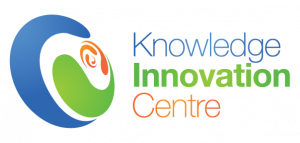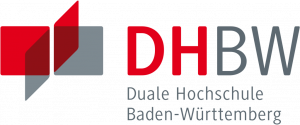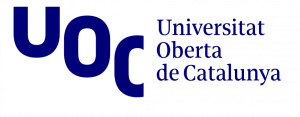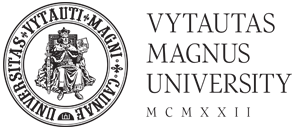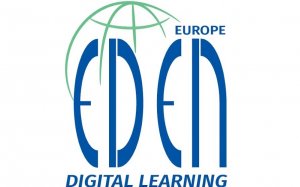The International Micro-Credentials Summit consists of five main tracks:
Micro-Credential Labs Track
Groups of researchers and practitioners working on micro-credentialing projects will further develop their ideas within ongoing work-streams. Each lab is restricted to members or invitees of the respective project.
European Digital Education Hub Track
Digital education experts, within the context of the European Digital Education Hub, will discuss the digital implications of micro-credentials. For further information on EDEH workshops, reach out to
Micro-Credentials Masterclass Track
Leading experts in micro-credentialing will give short, inspiring speeches on their work, and share their vision of what is next.
Declaration Track
A roadmap of what needs to happen next to accelerate high quality micro-credentialing will be drafted together with the Masterclass participants.
National Seminar Track
A gathering of Catalan and Spanish Experts, to discuss Micro-credentials in a national context.
The themes of the event include:
Strategic Leadership:
- How to use policy instruments to widen access to education, training and employment via micro-credentials?
- How to target micro-credentials policies for maximum impact to citizens?
- How to define and measure success of micro-credential policies?
- What demands do micro-credentials make of our digital educational infrastructure, and how to meet them?
- What emerging standards and technologies support micro-credentialing, and what is still needed?
- What does the labour market require to recognize micro-credentials as relevant?
- How do we bridge gaps between traditional academic concepts of recognition and automatic recognition?
- Can a trust network for micro-credentials be constructed? What is needed to do so?
- Can the co-creation of micro-credentials better activate the potential for lifelong learning?
- How to sustain funding schemes for lifelong learning through Micro-Credentials?
- How do micro-credentials help employers/employees with upskilling and reskilling?
Scroll down the page to learn more about our hosts and sponsors!
What’s included in the registration fee?
Masterclass participants receive access to the opening networking event and dinner on Tuesday, March 21 from 17:30-21:00h.
Coffee breaks, lunch and dinner will be provided on Wednesday, March 22nd.
A coffee break and lunch will also be provided on Thursday, March 23rd.
What’s not included in the registration fee?
Personal travel to and from the Masterclass venue is not included. Hotel accommodations are also not included, although a Masterclass hotel rate (114 euro per night including breakfast) is being offered through Hotel Rey Don Jaime. In order to receive this Masterclass price, please send an email to reservasdonjaime@grup-soteras.com using the Keyword “UOC”.
Where is the closest airport?
The closest airport to the Masterclass is El Prat Airport which is located 15 minutes by taxi from the Masterclass venue (directions here).
What’s the best way to travel between the Airport and the Masterclass hotel venue?
- Taxi: The fastest way (12 minutes) to get to the hotel is by taxi, which should cost between 15 and 20 euros. Barcelona city has a new app for ordering taxis, available here. There is an easy to find taxi line at the airport exit.
- Bus: There is a bus line (L94) which travels toward Castelldefels. You will need to change buses once to continue on toward the hotel venue, where you will have to walk 12 minutes to the hotel venue. Route information on google maps here.
- Train from Barcelona City Centre: There are also train options from Sants central station. Check the schedule here.
Prepare for the Masterclass
To help you navigate through the Masterclass themes, review some of the associated European projects on micro-credentialing at microcredentials.eu, or some of the participating projects, including:
Modular Continuing Education by Microcredentials
European Digital Education Hub
Weather
The weather in Barcelona and Casteldefells this time of year generally has averages of 17 degrees in the day and will drop to 10 degrees in the evening. You may check the forecast closer to the Masterclass here.
Bring appropriate spring clothes, as although it may be warm and sunny in the day time, the temperatures may be cooler in the evening.
Castelldefels and Barcelona information
If you have time to explore Barcelona before or after the Masterclass, you may find inspiration and useful information here.
TUESDAY 21 MARCH
| 19:30 | Networking Dinner at the Hotel |
WEDNESDAY 22 MARCH
| 09:00 | Opening Remarks – In Auditorium
Opening adresses by: |
| 09:15 | Keynotes – In Auditorium
An EU approach to Micro-credentials: Culling or creating chaos? Key findings from a recently completed OECD paper on micro-credentials. Competency and Capacity: Designing Micro-credentials and Supporting Frameworks for Change in Higher Education. |
| 10:45 | Coffee Break |
| 11:15 | Session 1: Micro-Credentials for Regional Development – In Auditorium
Promoting fair recognition of Micro-credentials in Asia-Pacific: Understanding complex accountabilities. (presentation title to be uploaded shortly) Session 2: Increasing Responsiveness of Education through Micro-Credentials – In Garaf (top floor) Micro-credentials untold – The European, online, distance perspective A Micro-Credential Implementation Handbook: A framework for faster execution and engagement of institutional leaders. Buidling the D-RESKILL@U guidance software: a testbed for thinking in terms of skills gap analysis and micro-credentials |
| 13:15 | Lunch |
| 14:45 | Session 3: Good Practice System level Implementation of Micro-Credentials –
In Auditorium Slowly moving from strength to strength: Micro-Credentials Downunder MicroCreds ….A framework for the future. The Dutch national approach to Micro-credentials. Filling the (skills) gap: Micro-credentials and micro-degrees as an enabler for AI in higher education and further education in Germany Session 4: Interoperable and Learner-Centered Micro-Credentials – In Garaf (top floor) One European Standard to Express Course, Qualification and Credential Data Is there such thing as an LER? Building a Credentials Ecosystem for Socioeconomic Mobility Smart Credentials and Smarter Learners CertiDigital: Digital Micro-Credentials for Spanish Universities. |
| 16:45 | Coffee Break |
| 17:15 | Declaration Track – Garaf (2nd floor)
Information on this track is to be disseminated to the participants shortly. |
| 20:00 | Networking Dinner – Casa Nova Beach Club |
THURSDAY 23 MARCH
| 09:00 | Keynote – In Auditorium
SUNY’s Story: A Policy-Based Approach to Scaling Micro-credentials Across Different Institution Types |
| 09:30 | Session 5: Crossing the Abyss: From Micro-Credentials to the Labour Market – In Auditorium
From Open Badges to Linkedin and bootcamps to MOOCs: evolving perspectives on micreds and the tech that enables them Micro-credentials: Empowerment through free education & skill development for everyone Micro-credentials – the new black or the Emperor’s new clothes? Findings from Cedefop’s project on Micro-credentials for VET and labour market learning What contribution can micro-credentials make in the context of re-skilling and upskilling measures in industry / for Festo? Session 6:Trust-building Strategies and Iniatives for Micro-Credentials – In Garaf (top floor) The Leadership Imperative: Developing a Successful Micro-credentials Implementation Strategy A vision for an Open Trust Framework for Micro-Credentialling Micro-credentials: a way to widen recognition? New frontiers for the ESG: showing micro-credentials and alternative providers in DEQAR |
| 11:30 | Coffee Break |
| 12:00 | Panel Debate |
| 13:30 | Closing |
 William O’Keeffe, Policy Officer in the VET unit in DG Employment, Social Affairs and Inclusion at the European Commission William O’Keeffe, Policy Officer in the VET unit in DG Employment, Social Affairs and Inclusion at the European Commission
William O’Keeffe is a Policy Officer in the Vocational Education and Training (VET) unit in DG Employment, Social Affairs and Inclusion at the European Commission. He most recently worked on the development of the European approach to micro-credentials and has previously worked on the new Europass platform, including European Digital Credentials for Learning, as well as digital and entrepreneurial skills in the Commission. William previously worked in Quality and Qualifications Ireland (QQI) where he worked with the Irish ENIC-NARIC, and topics related to quality assurance and learning mobility. |
 Jake Hirsch-Allen, North America Workforce Development and Higher Ed System Lead at LinkedIn Jake Hirsch-Allen, North America Workforce Development and Higher Ed System Lead at LinkedIn
Jake is a Director on the Boards of the Ontario Tech Talent, Canadian Council for Youth Prosperity, and the Canadian Club. He founded Lighthouse Labs, Canada’s foremost software development bootcamp and Hacking Health. A former intellectual property and international criminal lawyer, Jake was also Chair of the Technology Committee of the Global Education Platform, taught Global Health at McMaster University and clerked at the Supreme Court of Israel. |
 Wesley Teter Senior Consultant for Educational Innovation and Skills Development at UNESCO’s Asia and Pacific Regional Bureau for Education Wesley Teter Senior Consultant for Educational Innovation and Skills Development at UNESCO’s Asia and Pacific Regional Bureau for Education
Dr Wesley Teter is Senior Consultant for Educational Innovation and Skills Development at UNESCO’s Asia and Pacific Regional Bureau for Education in Bangkok, Thailand and an advisor in the Learning Economy Foundation’s R&D Lab. He promotes cross-sector collaboration in education and health workforce governance with projects funded by the Asian Development Bank (ADB), UNESCO, the U.S. Department of State and World Bank. He is co-editor of the forthcoming Handbook of Education Policy by Edward Elgar Publishing (2023) and two UNESCO guidelines on developing and implementing qualification frameworks in Asia-Pacific. His technical assistance projects in Asia-Pacific focus on understanding implementation gaps for fair recognition of skills and qualifications. |
 Shizuka Kato, Higher Education Policy Analyst in the Directorate for Education and Skills at the OECD Shizuka Kato, Higher Education Policy Analyst in the Directorate for Education and Skills at the OECD
Shizuka Kato is an Analyst in the OECD Directorate for Education and Skills, currently leading work on microcredentials. She specialises in higher education policy and has previously worked on projects examining the emergence of alternative credentials, digital transformation and labour market relevance and outcomes, as well as the review of several European higher education systems. Prior to joining the OECD, she worked for Waseda University in Tokyo, facilitating the institution’s faculty and student mobility and international cooperation in the International Affairs Division. |
 Lena Patterson, Program Director of Business Development and Microcredentials at the Toronto Metropolitan University Lena Patterson, Program Director of Business Development and Microcredentials at the Toronto Metropolitan University
Lena is Program Director of Business Development and Microcredentials at The G. Raymond Chang School of Continuing Education at Toronto Metropolitan University (TMU), Canada, where she serves professional learners in a new Microcredential strategy and portfolio. She has eleven years experience in higher education and nonprofit leadership focused on open education, online and technology-enabled teaching and learning, education and industry pathways, and microcredentials. Prior to joining TMU, Lena was a Senior Director at eCampusOntario, where she led the design of a province wide Microcredentials Framework and popularized it for system application through pilot funding, research, and community engagement. Lena has a Doctorate in Educational Leadership from Western University. |
 Cynthia Proctor, Director of Communications and Academic Policy Development at SUNY, New York Cynthia Proctor, Director of Communications and Academic Policy Development at SUNY, New York
Cynthia Proctor is the Director of Communications and Academic Policy Development at the State University of New York (SUNY) System. With SUNY for over 20 years, she develops and supports the implementation of SUNY academic policy (applicable to all 64 campuses). Central to her work is advancement of SUNY’s award-winning microcredential policy, working to provide transformational career opportunities and pathways to initial and advanced degrees—for existing learners, adult learners and incumbent workers at every level. Ms. Proctor holds a Master’s degree in Strategic Public Relations from George Washington University and a bachelor’s degree in Public Relations/Journalism from Utica College. |
 Mike Feerick, CEO & Founder of Alison Mike Feerick, CEO & Founder of Alison
Mike Feerick is CEO & Founder of Alison, one of the world’s largest free empowerment platforms with near 30 million registered users and 5 million course graduates. Alison provides 4,000+ free micro-courses focused on workplace learning and skills training, free psychometric, aptitude, and mental health and wellbeing tests and assessments, as well as free recruitment and group learning and free LMS services to organisations. Based in Ireland, Alison is a for-profit social enterprise and employs a team of 200 remote staff across 35 countries. |
 Michael Sankey, Professor and Director, Learening Futures and Lead Education Architect at Charles Darwin University Michael Sankey, Professor and Director, Learening Futures and Lead Education Architect at Charles Darwin University
Professor Michael Sankey is from Charles Darwin University in Australia, where he is the Director Learning Futures and Lead Education Architect. In addition to this role, Michael is President of the Australasian Council on Open, Distance and e-Learning (ACODE) and a Fellow of the Australasian Society for Computers in Learning in Tertiary Education (ASCILITE). He specialises in emerging technologies, technology enhanced learning, curriculum and assessment renewal, eLearning quality, multimodal design, digital, visual and multiliteracies. Michael has worked in Higher Education for 30+ years, at 5 Universities and is particularly interested in how constructively aligned and aesthetically enhanced learning environments can better transmit concepts to students, particularly those from diverse backgrounds and those who study at a distance. |
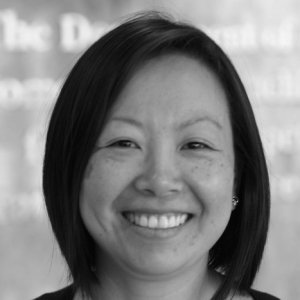 Sharon Leu, Executive in Residence at JFFLabs – Jobs for the Future (JFF) Sharon Leu, Executive in Residence at JFFLabs – Jobs for the Future (JFF)
Sharon Leu is an Executive in Residence at JFFLabs at Jobs for the Future, a national nonprofit in the US driving the design and scale of technology-enabled approaches to promoting economic advancement. She is focused on building infrastructure for a skills-based talent marketplace, supporting interoperability standards for digital credentials technology, and empowering individuals to use their data to access opportunity. Prior to joining JFFLabs, Sharon led postsecondary education innovation at the US Department of Education’s Office of Educational Technology and has managed the employment and training innovation portfolio at the US Department of Labor’s Division of Strategic Investments. Sharon hopes to be a park ranger when she grows up. |
 Simone Ravaioli, Director Global Ecosystem and Innovation at Parchment.com Simone Ravaioli, Director Global Ecosystem and Innovation at Parchment.com
Creative EdTech leader with a portfolio of diverse experiences advancing the global credentialing ecosystem. Day job is to turn credentials into opportunities as the Director of Global Ecosystem and Innovation at Parchment, the leading credentialing platform in Higher Education globally. Night hustle is to build out the global credentialing ecosystem across education and work by contributing and leading work on technical open standards in support of technical (and human) interoperability |
 Mark Brown, Professor and Director of the National Institute for Digital Learning at Dublin City University as well as Executive Board Member of EDEN DLE Mark Brown, Professor and Director of the National Institute for Digital Learning at Dublin City University as well as Executive Board Member of EDEN DLE
Professor Mark Brown is Ireland’s first Chair of Digital Learning and Director of the National Institute for Digital Learning (NIDL) at Dublin City University, Ireland. Mark is a Senior Fellow of the European Distance and eLearning Network (EDEN) and also serves on the Management Board of EDEN Digital Learning Europe. Additionally, Professor Brown serves on the Supervisory Board of the European Association of Distance Teaching Universities (EADTU). The Commonwealth of Learning recognised Mark in 2017 as a world leader in the field of Open, Distance and Digital Education and in 2019 he chaired the ICDE World Conference on Online Learning held in Dublin. In 2020, Mark contributed to the European Commission’s Higher Education Consultation Group on developing a EU-wide policy response to the growth of micro-credentials. In 2021, Mark completed a state-of-the-art literature review on the global development of micro-credentials on contract to the European Commission. In 2022, Professor Brown was commissioned by the OECD to review quality assurance processes for new models of blended, hybrid and online learning worldwide and this year the contract extends to include micro-credentials. Mark More information… https://www.dcu.ie/nidl/director-nidl |
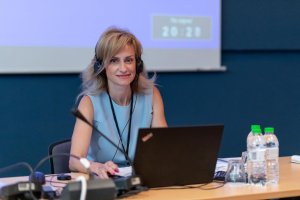 Anastasia Pouliou, Expert in qualifications and credentials at CEDEFOP Anastasia Pouliou, Expert in qualifications and credentials at CEDEFOP
Anastasia Pouliou is a Cedefop Expert in qualifications and credentials – Future of VET. She is currently leading the research conducted under Cedefop’s project on Microcredentials for labour market education and training, the project on learning outcomes and the Future of VET in Europe. She is involved in other Cedefop activities (including the coordination of developments on national qualifications frameworks and the TVET-Interagency group on the Future of VET). Before joining Cedefop she worked as an educational consultant in the Ministry of Education and Religious affairs and as a head of the European Affairs Unit in the Organisation for Vocational Education and Training (Greece). She has performed senior management and national coordination on Europass and Leonardo da Vinci projects and has published articles in academic journals. |
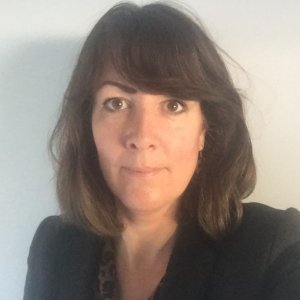 Deirdre Harkin, Project Lead for the Micro-credentials programme at Trinity College Dublin and, also speaking on behalf of the Irish Universities Association Deirdre Harkin, Project Lead for the Micro-credentials programme at Trinity College Dublin and, also speaking on behalf of the Irish Universities Association
A highly motivated education professional with over 20 years’ experience in teaching, delivery of professional development and change management in the education sector. As Regional Development Officer with the National Behaviour Support Service and Assistant National Coordinator with the National Council for Special Education I was committed to embedding inclusive and innovative practice. I am passionate about the provision of high-quality educational opportunities for all learners with a strong focus on delivering transformative and sustainable organisational change. I am currently Project Lead for the Micro-credentials programme at Trinity College Dublin as well as a member of the Irish Universities Association MicroCreds team. This project is part of the national Human Capital Initiative for driving innovation and agility in the higher education sector in Ireland. |
 Elena Janssen, Digital Learning Expert at GIZ, Germany Elena Janssen, Digital Learning Expert at GIZ, Germany
Elena Janssen is a Digital Learning expert with a background in psychology and learning sciences. She has worked in both public and non-profit sectors, having developed open educational resources and social digital learning spaces for learners ranging from primary to post-university level. Elena is working as Lead of Learning Experience at atingi, a global learning platform of the German Institute for International Development. Her goal is to connect people to opportunities – at atingi, she is focusing on increasing the value of digital certificates. Atingi is developing new ways for users to display and validate their skills, gained in formal and informal contexts, enabling them to own their data through a decentralized personal Learning record store that connects them to employment opportunities, provides personalized learning pathways, and support tailored to their unique context, goals, and needs. |
 Chiara Finocchietti, Director of CIMEA-NARIC, Italy Chiara Finocchietti, Director of CIMEA-NARIC, Italy
Chiara Finocchietti is Director of CIMEA – NARIC Italia. Geographer, she comes from the world of research and is an expert in the evaluation of qualifications and higher education systems. Author of various publications on the subject of credential evaluation, she coordinates numerous international projects on the above topics and is a member of various international working groups on higher education policies. She has been appointed a member of the European Union Micro-credentials Higher Education Consultation Group, she is a member of the Working Group on Higher Education of the Council of Europe Steering Committee for Education (CDEDU Working Group on Higher Education), and is an expert of the ETINED Platform (Council of Europe Platform on Ethics, Transparency and Integrity in Education). She is Vice-president of the ENIC Bureau and National Correspondent for the Italian Qualifications Framework within the EHEA. |
 Colin Tück, Director of the European Quality Assurance Register for Higher Education Colin Tück, Director of the European Quality Assurance Register for Higher Education
Colin Tück is the Director of the European Quality Assurance Register for Higher Education (EQAR). He has been working for EQAR since October 2007, initially as Project Manager on behalf of its founding members (ENQA, ESU, EUA and EURASHE). Colin is overseeing the management of the Register and the support for the EQAR Register Committee, the management of the Database of External Quality Assurance Results (DEQAR) and EQAR’s contribution to shaping the European Higher Education Area (EHEA). He was a member of the Steering Group for the revision of the Standards and Guidelines for Quality Assurance in the European Higher Education Area (ESG), and is a co-author of the European Approach for Quality Assurance of Joint Programmes. |
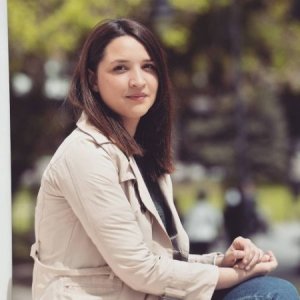 Aleksandra Zhivkovikj, Policy and Project Officer at the European Quality Assurance Register for Higher Education Aleksandra Zhivkovikj, Policy and Project Officer at the European Quality Assurance Register for Higher Education
Aleksandra Zhivkovikj joined the Secretariat in July 2020. She holds a Master of Laws (LLM) from the University “SS. Cyril and Methodius”-Skopje and a master’s degree in educational policies and development from the University of Oslo, the Autonomous University of Barcelona and the University of Malta. She has been working in the civil society sector in North Macedonia for a few years, participating in several research projects about higher education, exploring topics such as malpractices in academia, disadvantaged groups in higher education, student services and guidance, student activism and organising. Before joining the Secretariat, Aleksandra worked as a consultant at the OECD’s Directorate for Education and Skills. |
 Ildiko Mazar, European Digital Credentials for Learning consultant at NTT Data Ildiko Mazar, European Digital Credentials for Learning consultant at NTT Data
During her 25 years of professional practice in the field of open education and e-learning Ildiko has observed and engaged in policy dialogues, professional academic collaborations, and practice exchange, actively contributing to the modernisation of European Higher Education and education technology in general. Utilising her experience, expertise and transversal skills, she contributed to the conception, management and sucessful implementation of 50+ edtech projects. Recently she’s focusing mostly on the development and uptake of innovative solutions in the fields of competence development and (micro-)credentialing. Since 2019 she has been supporting the European Commission in deploying the Europass Digital Credentials for Learning. |
 Florian Rampelt, Programme Director for Digital Education and Managing Director of the AI Campus at Stifterverband Florian Rampelt, Programme Director for Digital Education and Managing Director of the AI Campus at Stifterverband
Florian is Programme Director for Digital Education and Managing Director of the AI Campus at Stifterverband in Berlin. The education scientist works on future-proof education and training for the digital transformation. His mission is to strengthen AI knowledge and skills through free digital learning opportunities for everyone. Florian’s research currently focuses on knowledge, skills and qualifications on artificial intelligence, questions of recognition of prior learning and the potentials of micro-credentials in Germany. |
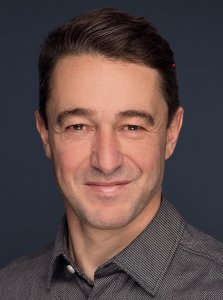 Mike Bernd, Team Lead at the Stifterverband and Head of Content in the research and development project AI Campus Mike Bernd, Team Lead at the Stifterverband and Head of Content in the research and development project AI Campus
Mike is a Team Lead at the Stifterverband and Head of Content in the research and development project AI Campus – The Learning Platform for Artificial Intelligence. The social scientist worked previously as a Manager for Quality Assurance at Kiron Open Higher Education and as an Instructional Designer at the University of Applied Sciences Hamburg. During his four years at the University of Shanghai for Science & Technology he designed digital micro learning content for the use in blended learning settings. The development of smart learning environments and digitally enhanced learning spheres is his passion. |
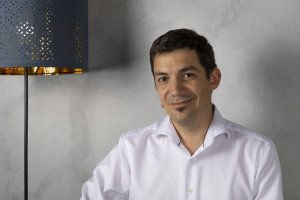 Anthony F. Camilleri, Senior Partner at Knowledge Innovation Centre Anthony F. Camilleri, Senior Partner at Knowledge Innovation Centre
Anthony has over 15 years of experience in areas of learning innovation, digitisation, and quality assurance. His current area of expertise lies in unbundling, micro-credentialing and interoperability of educational data. He has served as the scientific coordinator of multiple E+ projects focusing on micro-credentialing, including MicroHE, MicroCredX, ECCOE, VMPass, and OEPass. In addition, Anthony was a member of the EU Advisory Group on Micro-Credentials and has presented 25+ keynotes and presentations at conferences, sharing guidelines and best practices for micro-credentials. He is one of the creators of the European Learning Model, and the European Digital Credential Infrastructure. |
 Paul den Hertog, Senior Advisor at SURF, Netherlands Paul den Hertog, Senior Advisor at SURF, Netherlands
Paul den Hertog is a sailor, design thinker and project manager with a strong believe in the positive effect of education on both individuals and society. Technology and education have enhanced the quality of life for most of us and will continue to do so. Paul is eager to make education more accessible and flexible than today, using emerging technologies. The introduction of Open Badges and Verifiable Credentials with a focus on international interoperability, is something he actively promotes. The Dutch initiatives that support this development, such as the SURF Edubadges infrastructure and the National Pilot with Microcredentials are considered essential ingredients for a more flexible and futureproof education landscape. |
 Carlos Delgado Kloos, Coordinator of CertiDigital, Spain Carlos Delgado Kloos, Coordinator of CertiDigital, Spain
Carlos Delgado Kloos received the Ph.D. degree in Computer Science from the Technische Universität München and in Telecommunications Engineering from the Universidad Politécnica de Madrid. He is Full Professor of Telematics Engineering at the Universidad Carlos III de Madrid, where he is the Director of the GAST research group, Director of the UNESCO Chair on “Scalable Digital Education for All”, and Vice President for Strategy and Digital Education. He has carried out research stays at several universities such as Harvard, MIT, Munich, and Passau. His main research interests are in Educational Technology. He has been involved in a large number of research projects and has published around 500 articles. He has coordinated several MOOCs and is presently promoting the adoption of digital micro-credentials in Spain through the project CertiDigital (certidigital.es). |
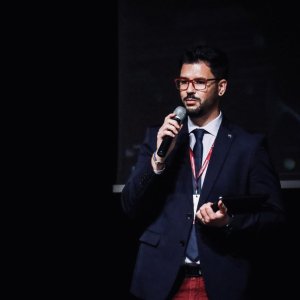 Fernando Galán, Executive Director at ARQUS European University Alliance Fernando Galán, Executive Director at ARQUS European University Alliance
Fernando Galán is the Executive Director of the Arqus European University Alliance and has over 10 years’ experience working on European higher education policies. Before joining Arqus, Fernando was head of international engagement at Crue Universidades Españolas, the Spanish rectors’ conference. He has also worked as policy and project officer at EURASHE, and as President of the European Students’ Union (ESU), being responsible for the coordination of its policy work. In these roles, he has contributed to relevant policy documents and initiatives in the field of higher education. Fernando has been a member of the BFUG board and of different expert groups of the European Union, the Council of Europe, UNESCO and the OECD, as well as of quality assurance agencies and universities among others. |
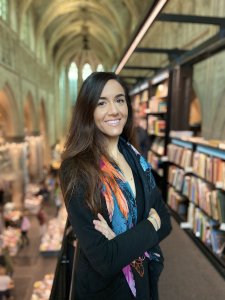 Alessandra Antonaci, Programme Manager at EADTU Alessandra Antonaci, Programme Manager at EADTU
Her expertise is related to EU projects funded management and coordination, pedagogy, didactics, educational technologies, gamification, active methodologies for adult education, lifelong learning, research methods, academic writing, reporting, and engaging techniques in online, blended and hybrid scenarios. She has gained experience in the course and curriculum design, policy recommendations and strategies, micro-credentials & recognition. Lately getting to know a lot (from the pedagogical side) about LLM and AI generative systems. |
 Corinne Aubert, Research Director at Centre National de la Recherche Scientifique at Sorbonne Université Corinne Aubert, Research Director at Centre National de la Recherche Scientifique at Sorbonne Université
Corinne Aubert leads the ERASMUS+ D-Reskill@U project. She is Research Director at Centre National de la Recherche Scientifique and former dean of Faculty of Sciences and Engineering, Sorbonne Université. Her research field is Molecular Chemistry. She has also an extensive experience in teaching her discipline. |
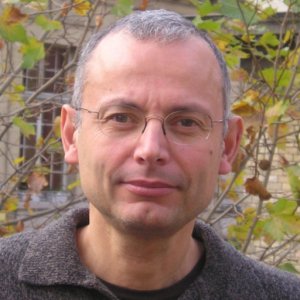 François Rochet, Professor of Chemistry at Sorbonne University François Rochet, Professor of Chemistry at Sorbonne University
François Rochet participates to the D-Reskill@U project, being responsible for the project result “Modelling the Career Guidance Software. He is professor of Chemistry at Sorbonne University. He is also director of the Parisian Institute of Physical and Theoretical Chemistry. His main research field is X-ray photoemission spectroscopy applied to surface reactivity. He teaches chemistry at all levels from introductory courses to specialized courses at master level. |
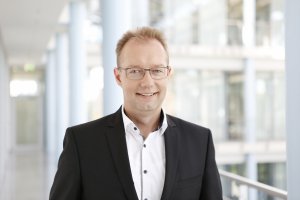 Manfred Zahn, Project Manager and Consultant at Festo SE & Co. KG, Germany Manfred Zahn, Project Manager and Consultant at Festo SE & Co. KG, Germany
Manfred Zahn holds a degree in mechanical engineering and completed his MBA in general management. His first positions at Festo were in operations and supply chain management. Manfred Zahn was then a lean consultant at Festo Didactic and a project manager in various customer projects. From 2010 to 2015, he was head of a consulting team at the Esslingen site. Between 2015 and 2020, he was Head of Qualification at Festo. Since 2020, he has been working as a project manager for strategic HR projects. Among other things, he is the project driver for the Capability Shift action field defined in the Festo Corporate Strategy. |
The event was organised by:

